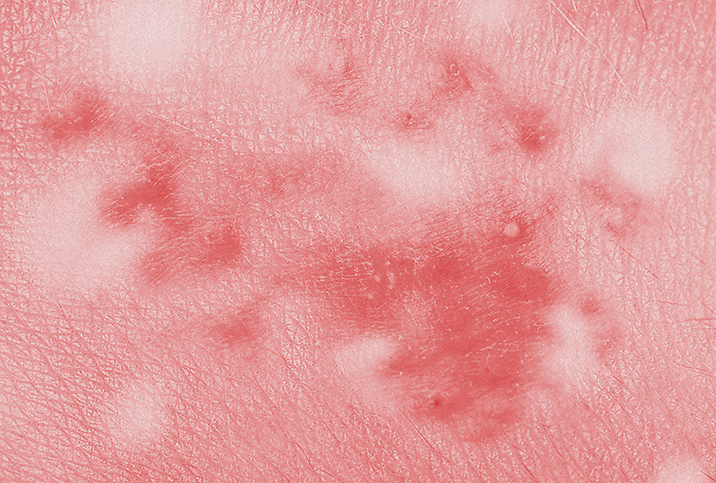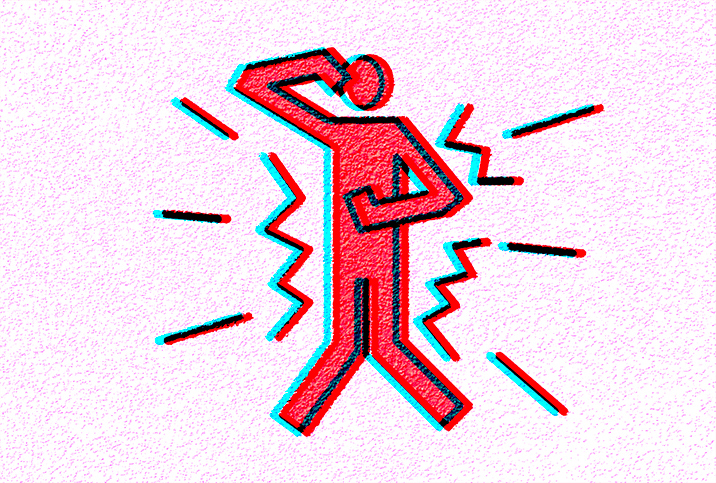Let's Get Serious About Lichen Sclerosus

You may not have heard the name thrown around in casual conversation, but lichen sclerosus should be on your radar, as the skin disease affects the external genitalia, resulting in itchy white patches and painful scar tissue. Beyond discomfort, the condition has the potential to yield serious complications if not properly managed.
Q: Who is most likely to get lichen sclerosus?
A: Postmenopausal women between the ages of 40 and 60 are the most commonly affected demographic, but lichen sclerosus has also been reported in young girls. The prevalence of lichen sclerosus is estimated to appear in 1 in 80 women. Overall, women are six times more likely to experience it than men.
Although less common, men can also get lichen sclerosus, but there are known ways to reduce risk. Circumcision lowers the risk of male lichen sclerosus—also known as balanitis xerotica obliterans—and may be recommended, even in adulthood, to help treat the disease.
Overall, women are six times more likely to experience it than men.
Scientists are not entirely sure why some people get lichen sclerosus and others don't. Having another autoimmune disease—like thyroid disease, vitiligo, type 1 diabetes or alopecia—seems to raise the risk. In addition, individuals with a family history of lichen sclerosus may possess genetic risk factors that increase their likelihood of developing the condition.
Q: What are the signs of lichen sclerosus?
A: Lichen sclerosus can be mistaken for other conditions, so it's important to bring concerns to your doctor for a full assessment. Skin affected by lichen sclerosus is thin, white and shiny, with a similar look to mother of pearl. Inflammation from lichen sclerosus reduces the skin's elasticity, causing itchiness that could lead to blisters, bleeding and pain. Along with the skin on the vulva or penis, the anus can also be affected. This can make a patient more susceptible to STIs with the skin compromised. Rarely, symptoms may spread to the breasts, thighs, mouth or other areas.
Some of the characteristics of lichen sclerosus resemble other conditions, such as a yeast infection. If you're experiencing such symptoms but have not found relief with antifungal treatments, seek a medical follow-up, which may include a skin biopsy. You could need steroid cream to help get the inflammation under control and manage future flare-ups.
Q: Is lichen sclerosus caused by unprotected sex or poor hygiene?
A: Experts believe lichen sclerosus stems from an improper immune response, not a virus or bacterial infection. Therefore, it is not contagious. A person with lichen sclerosus may find sex painful, but the condition poses no risk to their partner.
Poor hygiene doesn't cause lichen sclerosus, but paying extra attention to your skincare in the affected areas can help reduce your symptoms. Scratching or rubbing sensitive skin can exacerbate inflammation, increasing the risk of infection and scar tissue. Avoid potentially irritating fragrances and fibers by choosing unscented soaps and staying away from synthetic underwear and tight pants or stockings.
Q: Does lichen sclerosus have long-term effects?
A: Chronic skin irritation can lead to the development of scar tissue. Sometimes this scar tissue can alter the shape of genitalia and impair sexual function. Chronically inflamed or scarred skin can undergo mutations that lead to cancer in the affected tissue; women with lichen sclerosus have a 4 percent chance of developing vulvar cancer. However, lichen sclerosus is a localized problem that doesn't affect the internal organs.
Fortunately, there are various options to help address the symptoms of lichen sclerosus, including steroid ointments and retinoid creams. Cryotherapy, phototherapy, laser treatments or surgery can help in some instances. If your condition is resistant to other forms of treatment or you have another coexisting autoimmune disease, your provider may prescribe an immunosuppressant medication. To catch early signs of precancerous cells, a checkup with a dermatologist every six to 12 months may be recommended.
Getting help and support
Life with a chronic condition like lichen sclerosus can take a toll on your mental health and intimate relationships. If you're experiencing sexual issues caused by pain and discomfort, don't hesitate to discuss them with your healthcare provider. A counselor may also be helpful in this regard, and can help you process and handle the stigma and stress of the condition.


















